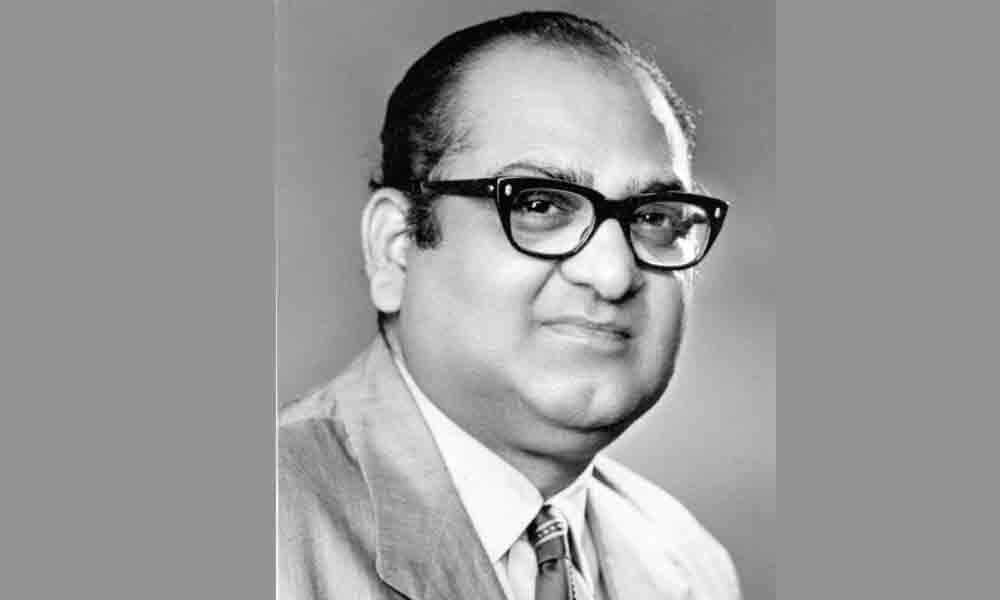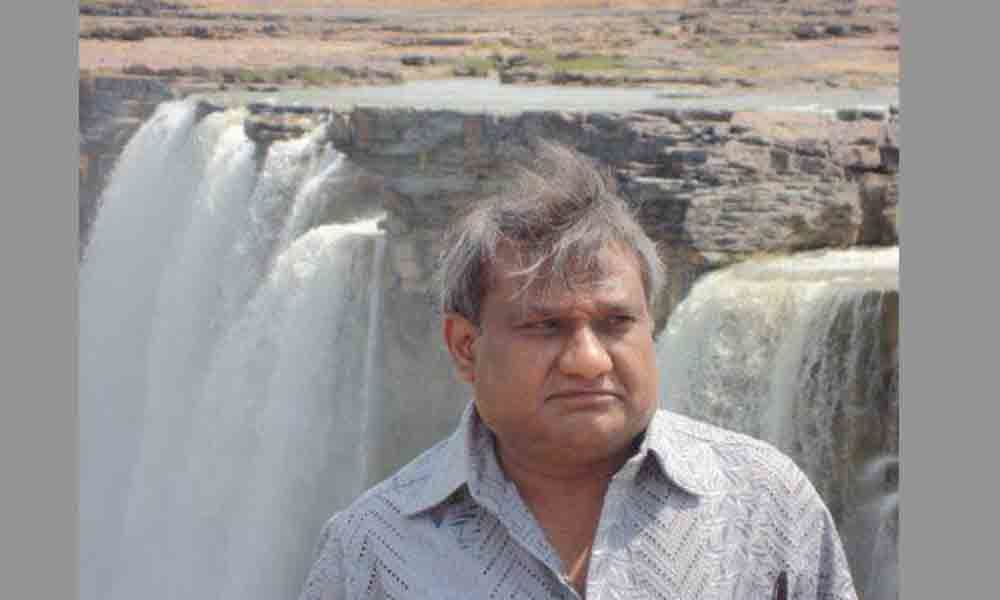Live
- Complete TTD model temple works in Prayagraj: JEO
- TGEC holds meet on fixing private school fees
- Visakhapatnam: RPF issues advisory to visitors on illegal parking
- IITH, Japanese city sign MoU for personnel exchange
- Rice millers, traders rig prices, exploit farmers, consumers
- Visakhapatnam: RINL wins gold award in energy conservation
- PETA sets up billboard, urges to ‘Go Vegan’
- Group 1 aspirants pin hopes on 1:100 ratio
- Sai Manohar takes charge as Madhapur Traffic DCP
- Visakhapatnam: City police impose curbs for New Year celebrations
Just In
For generations of viewers of his time and later, the mace-wielding mighty Ghatotkacha in the song 'Vivaha Bhojanambu- Vintaina Vantakambu' from the immortal mythological film 'Maya Bazaar', is an unforgettable experience with the actor's expression no less delectable than the food items displayed. As Lord Yama, who has no choice but to relent before the unswerving determination of Savitri, the scheming tantric known as 'Nepala Manthrikudu', who sent shivers down your spine in the super hit film 'Patala Bhairavi' and the mighty Ravana whose lengthy monologue won much sympathy for the anti-hero in 'Sampoorna Ramayanam' the actor was utterly convincing in whatever role he portrayed. Expressive eyes that conveyed a gamut of emotions, perfect diction and powerful dialogue delivery, a towering personality and electrifying screen presence were a heady mix that made Samarlakota Venkata Ranga Rao popularly referred to as SV Ranga Rao, an actor par excellence. SVR dominated the film industry for three decades between the 1950s to the '70s sharing screen space with the superstars of the Telugu and Tamil film industry. Ravana, Duryodhana, Yama, Kamsa, Hiranyakashipa, Bhishma and Akbar are part of the many larger than life characters portrayed by him leaving an indelible impression on audiences who identified completely with his onscreen characters. His long list of 162 films included intense roles in several social films too where he exhibited versatility portraying comedy, compassion, villainy and heroism with ease. The title 'Vishwa Nata Chakravarthi' conferred on him was in recognition of this innate acting talent that won him many admirers and fans.
A book titled 'SV Ranga Rao Kathalu' published by Tirupati Kiran of Kathaprapanacham shows that the talented actor was also a gifted writer whose short stories reveal a fascinating thinker, a reformist and a believer in the empowerment of women, a term not so 'fashionable' in the milieu that he lived in. Seven short stories that appeared in Telugu monthlies like 'Yuva' and 'Vipula' were brought together by the publisher as a tribute to the legend on the occasion of his birth centenary on July 3, last year. "I recall my uncle sitting with a bundle of papers and a pen on the lawn of his house on the days when there was no shooting. He used to write a few lines and then look up at the sky shaking his head as if he was inspired by some idea. I didn't know back then that these were indeed part of his story writing exercises,'' says Uday Badeti, SV Ranga Rao's nephew, who wrote the foreword for the book.
"Amidst the dangers in the forest posed by the instruments of death and the deceptively subdued elements in nature what is the place that Ranga Rao commands? Something akin to the size of a small atom, I guess. But what is the power that an atom holds? Is it this realisation that brings me six miles into this dense forest?" Ranga Rao asks in his story titled 'Veta' (Hunting), the very first in the list of seven stories featured in the compilation. The story about his hunting expedition in the 'Addateegala', 'Marripaka' and 'Errakunda' forests in Vishakhapatnam and 'Jiddangi' and 'Kakarapadu' in the East Godavari districts of Andhra Pradesh, is a beautiful take on the basic instincts of a man. It outlines the void felt by the author, who feels no elation after hunting down his game. Killing an animal stealthily through the use of a powerful weapon was an act that reflected his own arrogance and a false sense of power feels the author, who is filled with remorse. The death of the animal symbolically brings alive the human in him.
The remaining stories are a comment on the social system and are beautifully woven around human emotions that are intrinsic to life. Most of the characters in the stories featured here seem familiar and have idealism, reform, patriotism, atonement and experiences on the journey of life as themes. Although they reflect circumstances that existed decades ago, they have a freshness of appeal because they are about human emotions, failings and strengths. The book tells us that the great actor excelled in his role as an author too. We now know that he just didn't essay roles, he created them too.

© 2024 Hyderabad Media House Limited/The Hans India. All rights reserved. Powered by hocalwire.com









